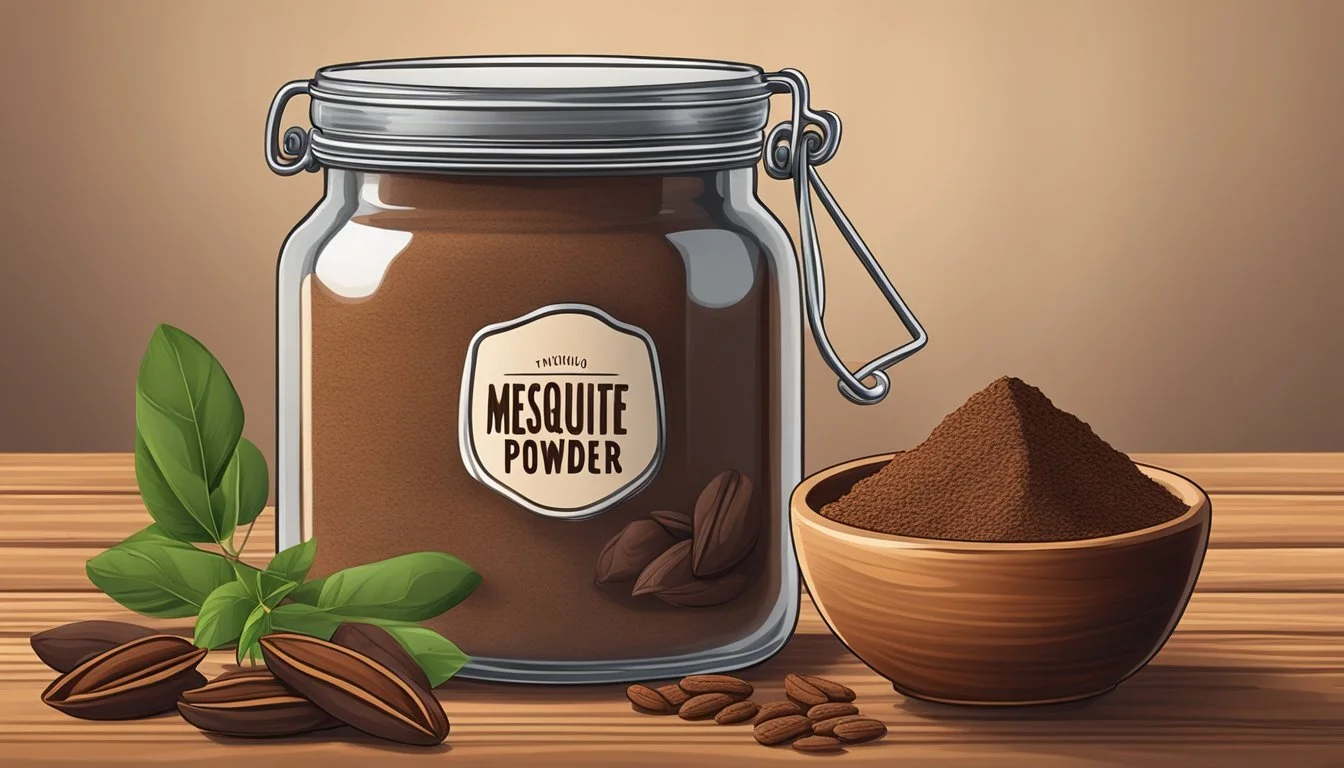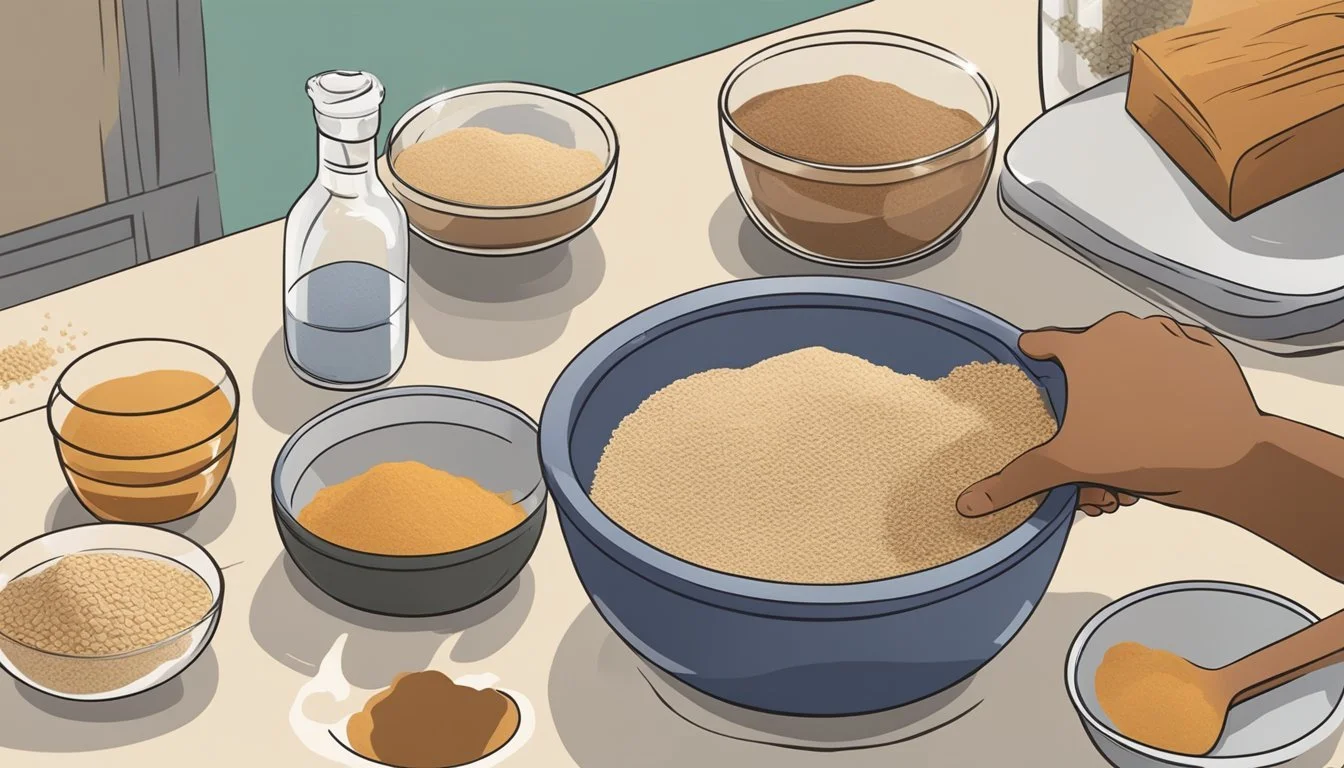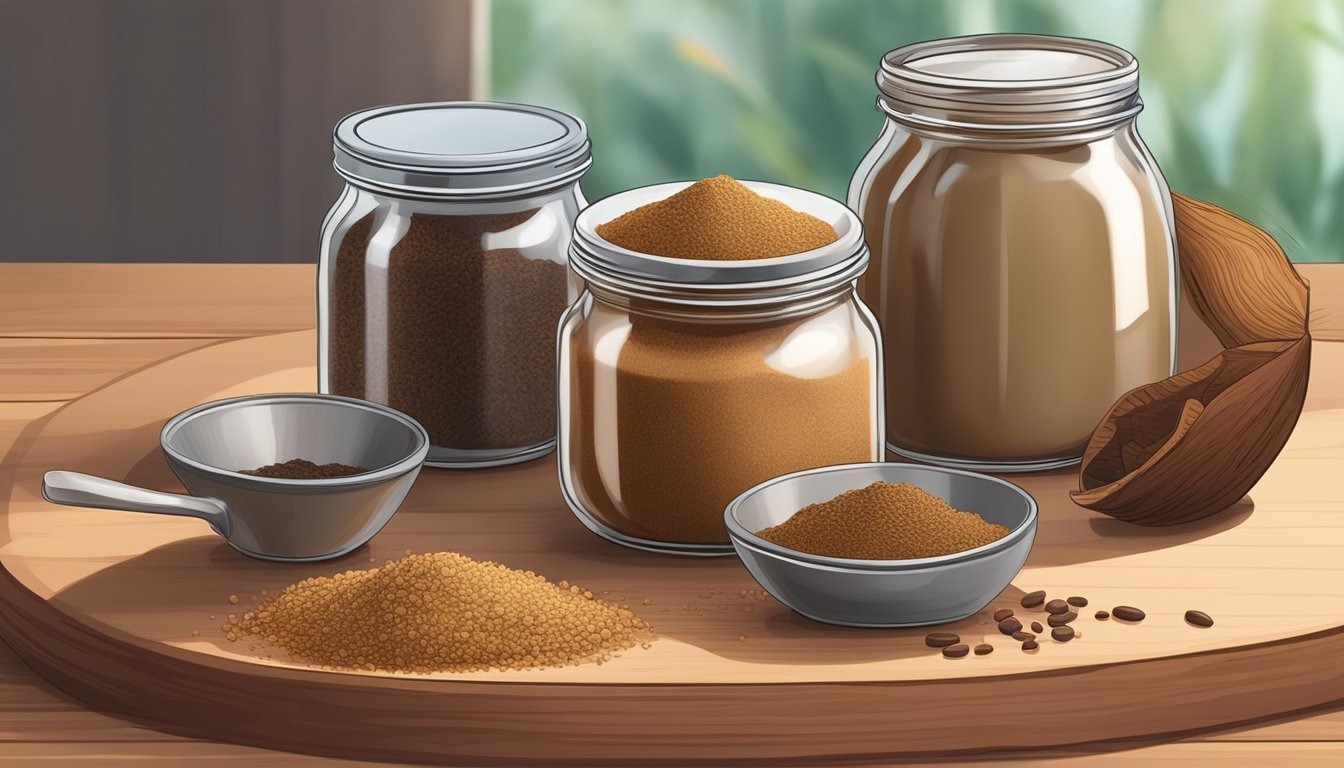Mesquite Powder Substitutes
Top Alternatives for Flavor and Nutrition
For those looking to enhance their culinary creations with a unique, smoky flavor, mesquite powder serves as a flavorful addition. Sometimes, however, finding mesquite powder can be challenging, and knowing suitable substitutes becomes essential. A great substitute for mesquite powder is brown rice syrup, which can be used at a ratio of 3/4 cup to 1 cup. This option not only adds moisture but also blends seamlessly into recipes, preventing any crumbling or dryness.
For those seeking a more spice-centric alternative, a blend of garlic powder and onion powder mixed with smoked paprika can mimic the essence of mesquite seasoning. This makes for an easy and effective way to infuse your dishes with a similar smoky taste. Experimenting with these substitutions can keep your recipes flavorful and exciting.
Mesquite powder lovers interested in baking can consider substituting up to half of the regular flour with mesquite powder. Recipes can adjust sweetness levels by starting with a 25-30% ratio of mesquite flour. These different substitutions ensure that even without direct access to mesquite powder, you can maintain the intended texture and taste in your culinary endeavors.
Understanding Mesquite Powder
Mesquite powder is derived from the pods of the mesquite tree, a leguminous plant native to South America. These trees produce pods that are ground into a fine powder.
The mesquite tree thrives in arid environments, making it a staple in regions with dry climates. The resulting powder is rich in protein, calcium, potassium, iron, magnesium, and zinc.
Nutritional Benefits:
Protein: Supports muscle repair and growth.
Calcium: Essential for bone health.
Potassium: Maintains proper cell function.
Iron: Crucial for oxygen transport in the blood.
Magnesium: Supports nerve and muscle function.
Zinc: Aids in immune function and wound healing.
Mesquite powder's unique flavor profile includes a sweet, nutty taste with hints of caramel. This makes it a versatile ingredient in baking and cooking.
Uses of Mesquite Powder:
as a partial flour substitute in baked goods
as a natural sweetener in smoothies and beverages
as a thickener in sauces
Dietary Fiber:
Mesquite powder is high in dietary fiber, promoting digestive health and helping to regulate blood sugar levels.
The powder's versatility and nutritional benefits make it an appealing ingredient for those looking to enhance the healthfulness of their recipes. Whether used in baking or added to beverages, it offers both flavor and nutritional value.
Characteristics of Mesquite Powder
Mesquite powder is known for its unique flavor profile and nutritional benefits, making it a versatile ingredient in various recipes. Its distinct taste and health advantages appeal to both culinary and health-conscious audiences.
Flavor Profile
Mesquite powder offers a sweet and nutty flavor with subtle hints of caramel and molasses. This natural sweetness makes it an excellent addition to both sweet and savory dishes. The powder, derived from the pods of the mesquite plant, brings a unique taste that many find reminiscent of cocoa or coconut flour, yet it stands out due to its distinct smoky undertones.
When used in baking or cooking, mesquite powder adds a rich and complex flavor without the need for additional sweeteners. It can be substituted for a portion of regular flour in recipes, enhancing the taste profile while contributing to the overall texture and moisture of the dish.
Nutritional Benefits
Mesquite powder is rich in dietary fiber, minerals, and protein, which contribute to its numerous health benefits. With a low glycemic index, it is suitable for people with diabetes as it helps in maintaining stable blood sugar levels. This makes it a preferred choice for those monitoring their fructose intake and seeking ingredients that support blood sugar control.
The powder is also low in calories, making it an ideal ingredient for those looking to reduce their caloric intake without sacrificing nutritional value. Additionally, mesquite powder is a good source of important minerals like calcium, magnesium, potassium, and iron, contributing to overall health and well-being.
Culinary Uses of Mesquite Powder
Mesquite powder offers a unique, naturally sweet, and nutty flavor to a variety of dishes. It is particularly versatile in baking, enhancing beverages, and adding depth to savory recipes.
Baking Applications
In baking, mesquite powder can be used to substitute a portion of traditional flours. Bakers often blend it with other flours to create cookies, cakes, and bread with a hint of caramel-like sweetness.
Mesquite powder helps retain moisture in baked goods, which is beneficial for gluten-free recipes as it prevents dryness. When using mesquite powder, mixing it with almond flour or coconut flour can yield delightful results.
Ratios for Baking:
Cookies and Cakes: Use 1/4 cup mesquite powder for every 1 cup of flour.
Bread: Substitute up to 1/2 cup of mesquite powder per 2 cups of regular flour.
Beverage Enhancement
Mesquite powder brings a rich, earthy flavor to beverages. Its natural sweetness makes it a great addition to smoothies and shakes without the need for added sugars. Blending it with milk or plant-based alternatives creates a nutrient-rich, flavorful drink.
Smoothie Recipe:
Ingredients:
1 banana
1 cup almond milk
1 tbsp mesquite powder
1 tsp cacao powder
Instructions: Blend all ingredients until smooth. Serve chilled.
Adding mesquite powder to coffee or hot chocolate introduces a distinctive smokiness. It seamlessly blends into the drink, enhancing the taste and providing additional nutrients.
Savory Dishes
Mesquite powder's smoky, sweet notes complement various savory dishes, especially meats and vegetables. It can be used as a seasoning or incorporated into marinades and rubs for grilling.
A simple mesquite powder rub can transform grilled chicken or pork, adding a depth of flavor reminiscent of barbecue.
Mesquite Rub Recipe:
Ingredients:
2 tbsp mesquite powder
1 tbsp paprika
1 tsp garlic powder
1 tsp onion powder
Salt and pepper to taste
Instructions: Mix all ingredients and rub onto meat before grilling.
In vegetable dishes, mesquite powder can be added to roasted vegetables, stews, or soups. Its unique flavor enhances the natural sweetness of vegetables like carrots and sweet potatoes, making it a versatile ingredient in any kitchen.
Substitutes for Mesquite Powder
Various alternatives can effectively replace mesquite powder in different culinary applications. These substitutes range from seasonings that mimic the smoky, nutty flavor to sweeteners and flour replacements. The key is to choose the right substitute depending on the specific needs of the recipe.
Mesquite Seasoning Alternatives
For those seeking the distinct smoky flavor of mesquite powder in their dishes, several seasoning options can serve as excellent substitutes.
Smoked paprika is a top choice due to its ability to replicate the smoky taste. Made from dried and smoked red peppers, it provides depth to roasted meats, vegetables, and soups.
Chipotle powder adds a smoky and spicy kick, perfect for savory dishes needing a bit of heat. Another good option is barbecue sauce, which offers a sweet and smoky flavor profile, ideal for meats. Use 1 teaspoon of barbecue sauce for every teaspoon of mesquite powder.
Blending smoked paprika with garlic powder, onion powder, cumin, and a touch of liquid smoke can also be a practical alternative.
Natural Sweetener Substitutes
In recipes where mesquite powder is used for its sweetness, there are several natural sweeteners that can serve as substitutes.
Honey and maple syrup are excellent options, bringing natural sweetness and a subtle complexity to dishes. These liquid sweeteners also add moisture, which is beneficial in baking.
Date sugar is another choice, derived from dried dates, providing a caramel-like sweetness and added fiber. Brown sugar can substitute as well, lending a rich, molasses-infused flavor. Use approximately half the amount of these sweeteners compared to mesquite powder due to their concentrated sweetness.
Flour Replacements
Mesquite powder is sometimes used as a partial flour substitute due to its nutritional benefits.
Replacing it in baking can be done with ingredients like almond flour or coconut flour. Almond flour adds a nutty flavor and protein, while coconut flour provides sweetness and fiber. Both need adjustments to liquid ratios in recipes due to their absorbency.
Oat flour is another viable replacement, offering a mild taste and versatility. When using these flours, substituting about 25-50% of the total flour with your chosen substitute can maintain recipe balance. Ensure to adjust liquids accordingly to achieve the desired consistency.
These substitutes help maintain the flavor and texture of dishes while addressing dietary preferences and ingredient availability.
Storage and Preservation of Substitutes
Properly storing substitutes for mesquite powder is critical for maintaining their quality and effectiveness. Focus on keeping them in optimal conditions to ensure their longevity and potency.
Keeping Substitutes Fresh
Store your substitutes in a cool, dry place to prevent exposure to moisture. Brown rice syrup and other liquid substitutes should be tightly sealed and refrigerated once opened. Flour-based substitutes, like mesquite powder itself, should be kept in airtight containers to avoid the risk of spoilage due to their hygroscopic nature.
Barbecue sauce should also be refrigerated after opening and kept away from direct sunlight. Regularly check all substitutes for any signs of spoilage, such as changes in color, texture, or smell, and discard if any issues are found. Always label containers with purchase dates to avoid using old products that could compromise the recipe's quality.
Maximizing Shelf Life
To extend the shelf life of your substitutes, invest in quality storage solutions. For powders, use glass or plastic containers with tight lids to block out moisture and air. Desiccant packets can be added to containers to absorb any excess moisture.
Liquid substitutes, such as brown rice syrup, maple syrup, and barbecue sauce, will last longer if stored in the fridge. Make sure to follow any manufacturer’s specific preservation instructions for the best results. Regularly inspect these items and use within recommended timeframes to ensure optimal performance.
Implementing these practices will help keep substitutes fresh and effective, maintaining the integrity of your recipes and their flavors.
Tips for Substituting Mesquite Powder
When looking to substitute mesquite powder, a few considerations can ensure the best results.
Brown Rice Syrup
Measurement: Use a ratio of 3/4 cup brown rice syrup to 1 cup mesquite powder.
Function: Adds moisture and stability, ideal for batter-based recipes.
Smoked Paprika
Add smoked paprika to roasted meats, vegetables, or soups for a smoky flavor.
Recommendation: Start with small amounts and adjust based on personal preference.
Combination of Garlic Powder and Onion Powder
Create a mesquite seasoning substitute by mixing equal parts garlic powder, onion powder, and smoked paprika.
Example Ratio: 1 teaspoon each.
Mixing with Flour
In recipes like cookies or cakes, replace up to half the amount of regular flour with mesquite powder.
Note: This adjustment can reduce or eliminate other sweeteners.
Chipotle Powder
Chipotle powder offers a smokier, spicier alternative.
Use:* Sprinkle as desired in recipes needing a bold flavor.
When selecting a substitute, consider the specific ingredient's role in the recipe and personal taste preferences. Adjust quantities as needed to achieve the right balance. For example, when baking cookies, mesquite adds a sweet, nutty flavor that can be mimicked with a combination of flours and spices suited to the individual's taste.







